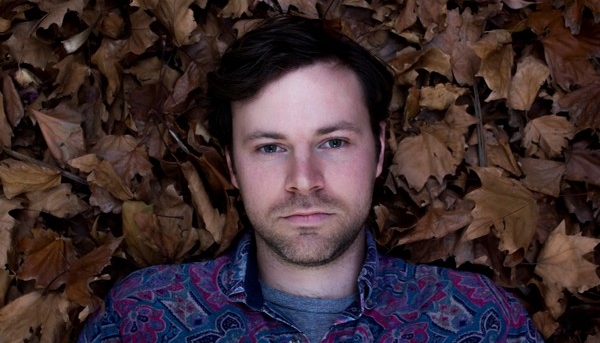“Every single day, all I ever think about is music,” he says. “My friends, my family and my fiancée all get very sick of this. But I don’t just want to be a good musician in my life. I want to be a good all ‘round person.”
Last week, Carty released his third LP Esk. The Brisbane-based songwriter’s previous LP, 2012’s Break Your Own Heart is a breakup record, communicated from a place of intimate self-reflection. While Carty is “very, very proud” of the release, Esk is a far less pensive affair.
“That side of my personality, where it’s just really introspective and analytical, I’m trying to get outside of that and see things from a more all-encompassing perspective.”
With this goal in mind, Esk was put together with a little help from some of Carty’s talented friends. In addition to contributions from his established live band, The Universe is a duet with Katie Noonan, The Joneses was written with Josh Pyke, and Sydney’s Casual Psychotic produced four tracks.
“Part of the [reason for the] collaborative preparation for this album was trying to not just be in my own head all the time,” he says. “I was in bands before I started doing the solo thing, but I always felt like something got lost in the translation. Since then I’ve found musicians that I play with all the time now that are really complementary. So nowadays I try to take other people’s opinions on the music as much as I can really.”
Embracing input from multiple parties gives Esk a more changeable dynamic than Carty’s previous releases. The record moves from the acoustic troubadour stylings of Summer in New Zealand, to the feisty upbeat kick of The Joneses and the piano-led lamentation of My Replacement.
Though Esk is a texturally diverse outing, Carty’s vocals and diligently constructed lyrics are the main attraction.
“Good lyrics for me are something that are so important to a song,” he says. “I know people that wouldn’t know the lyrics to any songs, because they just listen to the melodies. But for me, I might really like a song for its melody, but if it doesn’t have something that lyrically grabs me I probably won’t listen to it more than a couple of times.”
On a few tracks, Carty’s lyrics actually mention the act of songwriting, which was another attempt at overcoming his creative tunnel vision.
“[Songwriting] was the main way that I understood the world for a long, long time,” he says. “A lot of the times when I’m referencing songwriting, what I’m actually trying to do is get outside of that and bring a wider perspective into the songs. Rather than it just being my thoughts in my head all time.”
Regardless of the effect it’s had on his everyday behaviour, Carty’s obsessive application to penning tunes has seen him issue two EPs and three albums over the space of five years.
“Half of the time when I’m writing,” Carty explains, “I don’t sit down to write a song, it just kind of hits me. It’s really hard to explain, and it sounds really airy fairy, but sometimes I’ll feel for two days that there’s a song coming. And then it just pours out.”
While creative gold is somewhat dependent upon the ever-temperamental muse, it’s possible to develop a reasonable understanding of one’s strengths and approach creativity with methodical patience.
“I have managed to get myself to the point where I can consciously work away on a song that I’ve been writing for a while, but at some point it does always need that moment of inspiration. Otherwise it sounds forced and it doesn’t have anything special about it. I could just sit down and write songs, but I don’t want to release things unless I feel like they’re different and interesting and better than the things that I’ve already done.”
Perceiving your own strengths is one thing, but objectively evaluating the quality of what comes out is basically impossible. “Quite often, the things that I like about my songs are totally ignored by everybody,” Carty says, “And they like different things about them that I don’t like. I know what I enjoy doing and what makes me proud of my songs. That’s more or less always lyrics and melodies.”
Of course, trying to regulate other peoples’ listening experience – urging them that certain features deserve more attention – is a largely futile act, as everyone’s viewpoint will differ somewhat. By this stage in his recording career, Carty is willing to embrace the subjective variance of his listenership.
“You can’t control what people think and how they react,” he says. “That’s part of the weird and awesome thing about putting out bits of yourself into the world. I want to enjoy these processes and if you’re trying to control every aspect of it, it can suck a lot of the joy out of it. Nowadays I’m just trying to make music that I’m proud of and put it out there.”
BY AUGUSTUS WELBY

